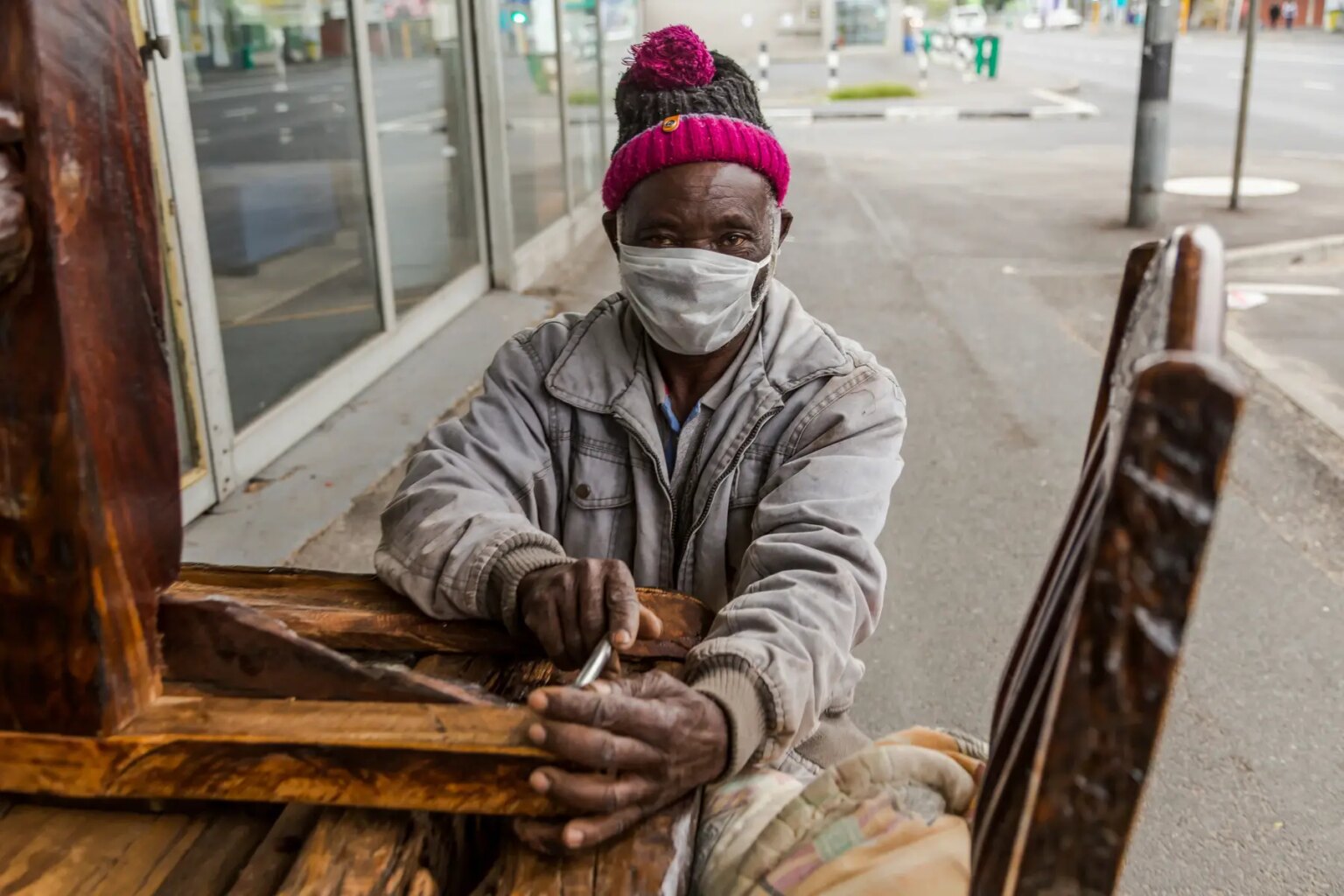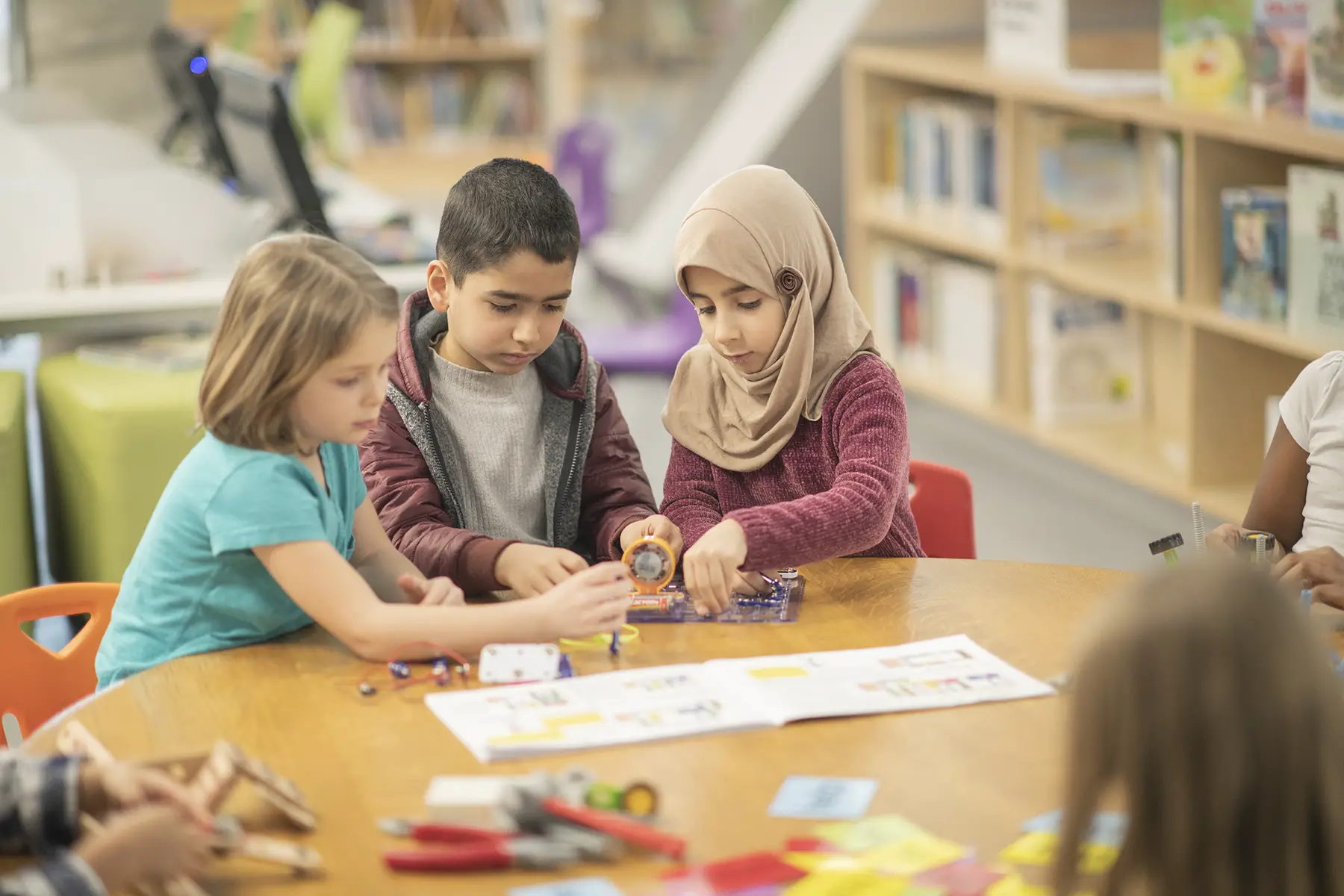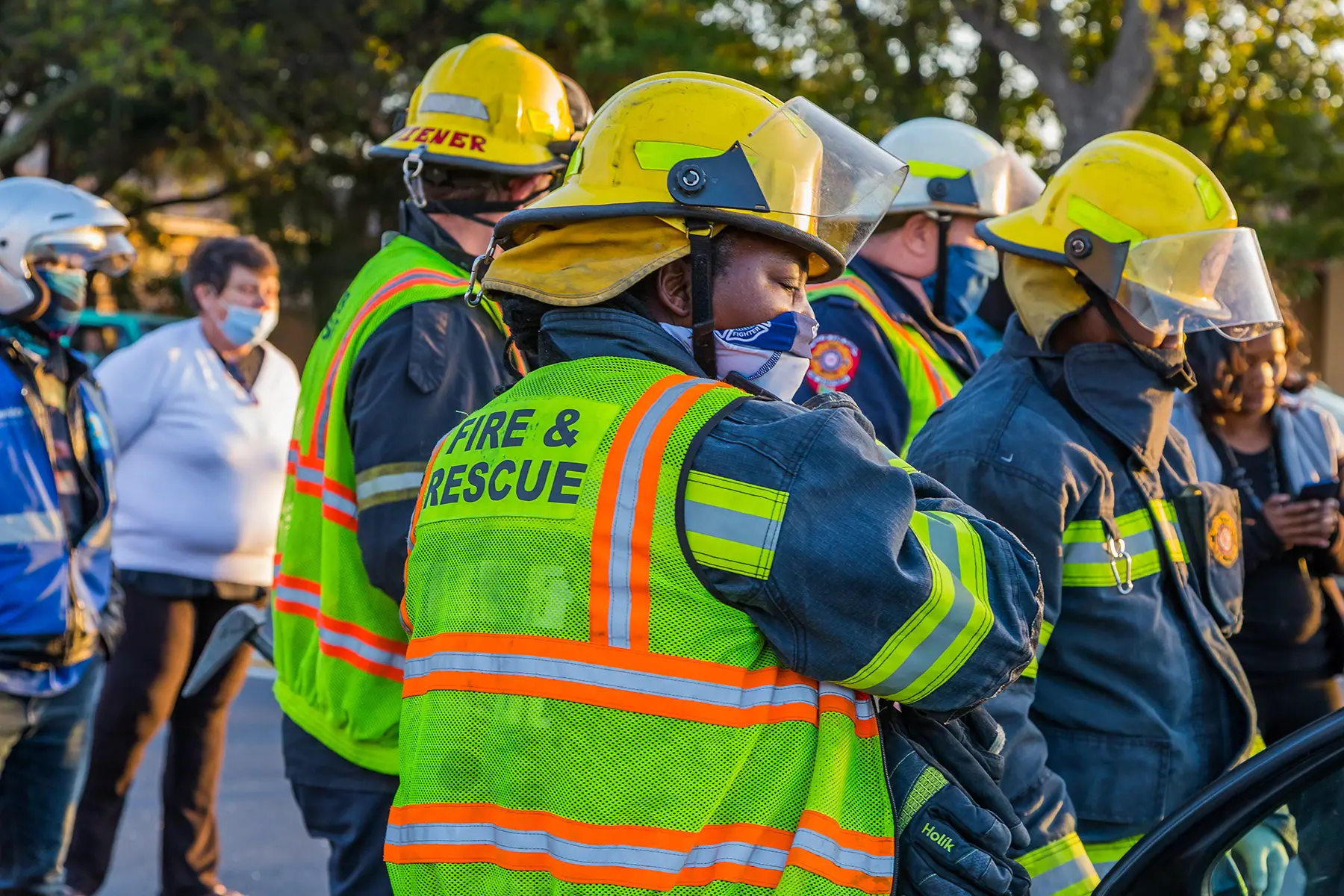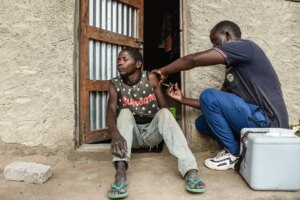When COVID-19 started its devastating spread across the globe, it first appeared as if South Africa might be able to escape the worst. Indeed, the country recorded relatively few cases of the coronavirus during those first few months. However, since June 2020, despite severe lockdown measures, coronavirus has ravaged its way through South African society, spreading quickly across the country. As a result, it severely strained the healthcare system and knocked the economy as South Africa became one of the hardest-hit African nations.
This guide gives an overview of the South Africa coronavirus situation, explaining where you can go to find information and support. Sections include:
- Coronavirus rules and measures in South Africa
- Apps for COVID-19 in South Africa
- Coronavirus testing in South Africa
- COVID-19 vaccinations in South Africa
- International travel during COVID-19 in South Africa
- Long COVID support in South Africa
- COVID-19 support for businesses, the self-employed, and freelancers in South Africa
- COVID-19 and education in South Africa
- Support around COVID-19 for vulnerable people in South Africa
Cigna Global
Want access to the best private medical services in South Africa? Speak to the healthcare professionals at Cigna Global today and find a policy that’s right for you. Take advantage of their global network of doctors, specialists, therapists and more with coverage tailor-made for you and your family. If you’re starting a new life in South Africa, get peace of mind with Cigna Global.
Coronavirus rules and measures in South Africa
The Department of Health, supported by the National Institute of Communicable Diseases (NICD), is responsible for dealing with the pandemic in South Africa. Unfortunately, its initial approach has been haphazard and vaccine rollout slow. Still, the country eventually managed to slow down its numbers and decrease the spread of new infections. You can access the COVID-19 live data counter for all the latest coronavirus statistics in South Africa. For more general information on the pandemic in South Africa visit its official COVID-19 portal.
Moreover, you can also reach the COVID-19 public hotline on 0800 029 999 (when in South Africa) or message the Whatsapp support line on 0600 123 456 for more information.
Overview of South Africa’s official COVID-19 response
South Africa operates on a five-tier alert level, adjusting its strategy depending on the coronavirus numbers. As a result, level 5 is the most severe lockdown measure. You can read more about the country’s COVID-19 risk strategy on its official coronavirus website.
On 26 March 2020, the government first imposed a strict national lockdown – for several weeks – to combat the coronavirus in South Africa. Consequently, people could not even walk their dogs. Even beaches were closed. Only one person per household could do a grocery run, but there was a ban on alcohol sales.
Facemasks were made mandatory in all public spaces. Furthermore, schools and universities went online, and people were encouraged to work from home wherever possible. Borders closed for international travel, and the measures restricted domestic travel.
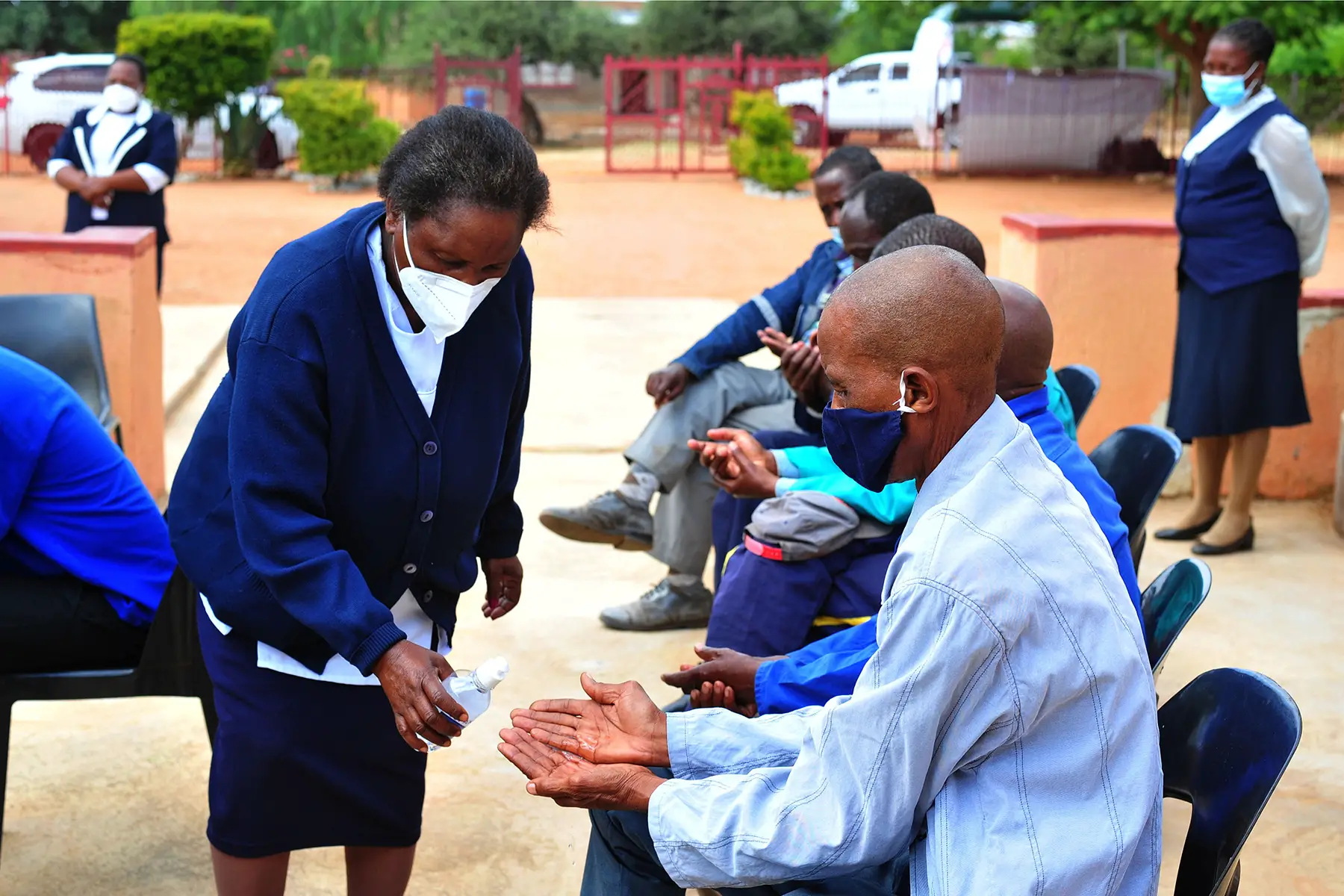
However, as of 13 September 2021, South Africa relaxed its measures to a level 2 lockdown alert. Thereafter, schools reopened but operated on a rotation system, and many workers chose to remain working from home. Nonetheless, as the measures can change quickly it is important to follow the official South Africa coronavirus portal for regular updates.
Level 2 lockdown alert
Generally, the current rules and measures to combat coronavirus in South Africa are:
- Curfew: from 23:00 to 04:00, people must remain home (of course, there are exceptions). If you break curfew, you could face a fine or even imprisonment.
- Closing at 22:00: public entertainment, hospitality, community, or sporting venues must close at 22:00. This rule includes outdoor spaces like public beaches and parks.
- Gatherings: there are no more than 500 people outside or more than 250 people inside allowed. Conversely, only 50 people are allowed at funerals.
- Alcohol sales: are only allowed from Mondays to Fridays between 10:00 to 18:00 (off-site consumption).
- Travel: inter-provincial travel is allowed.
- Masks: are compulsory everywhere, for adults and children (over the age of two).
- Social distancing: strict rules and physical barriers or indicators exist to impose distance from each other in public spaces.
Moreover, a quick search of the FAQ page would answer most of your questions around the South Africa coronavirus and its measures.
Apps for COVID-19 in South Africa
In South Africa, you can use the COVID Alert SA app to receive a notification if you were in close contact with someone who has tested positive. The South African government only approved this contract-tracing app as it promises to protect the privacy and security of users. You can download the app via Google Play, Apple Store, or Huawei AppGallery.
Currently, there is no South Africa-specific app to display your vaccination status electronically. However, many South Africans use the Health Passport Worldwide to upload their vaccination and test certificates, especially if they want to travel abroad.
Coronavirus testing in South Africa
Health professionals use diagnostic tests to detect if a person has an active coronavirus infection. A tester will swab the upper respiratory tract (back of the throat and nasal passage) and test the sample for the presence of the virus.
Types of tests
South Africa uses two diagnostic molecular tests for COVID-19: the PCR and antigen tests. Health professionals administer these tests by swabbing the inside of your upper respiratory tract (i.e., across the tonsils and inside the nasal cavity). After that, they test the sample to find out of the person is currently infected. Additionally, private pathology labs also offer antibody tests.
Lateral flow (antigen) tests
Antigen tests are rapid diagnostic tests looking for proteins on the surface of the virus to ascertain the presence of the pathogen. These tests may be less accurate in picking up an active COVID-19 infection. Still, it can be done on-site without a laboratory, returning results within 30 minutes. As a result, it is easy and affordable. This type of test is also used in self-testing kits. However, self-testing kits are not yet widely available in South Africa.
PCR (polymerase chain reaction) tests
PCR tests seek the genetic material called RNS, which instructs the virus to make proteins (detected by antigen tests). These tests are most accurate. They are done explicitly if a person has symptoms or has been in close contact with someone who tested positive. A bio-technician needs to test the sample in a laboratory. The results take 24 to 48 hours.
Antibody (serology) tests
COVID-19 antibody tests check if your body has generated antibodies to the virus, either through earlier infection or in response to the vaccine. However, not everyone who gets COVID-19 or is vaccinated makes antibodies. Therefore, a negative test doesn’t mean you’ve never had the virus.
A health professional will do a finger prick test to determine any antibodies in your blood. Test results only turn positive 2–4 weeks after active infection. However, the test cannot determine your level of immunity against reinfection.
When to test
The National Institute of Communicable Diseases (NICD) in South Africa recommends testing if you have symptoms and:
- Traveled to a high-risk country
- Been in contact with someone who tested positive
- Work in a healthcare facility for COVID-19 patients
- Have a severe case of pneumonia
Where to get a COVID-19 test in South Africa
If you suspect you may have coronavirus, contact the NICD helpline immediately (08000 0029 999). Consequently, an operator will direct you to the nearest test center.
However, often these centers do not test a person unless referred by a health professional. As such, your GP must assess you first.
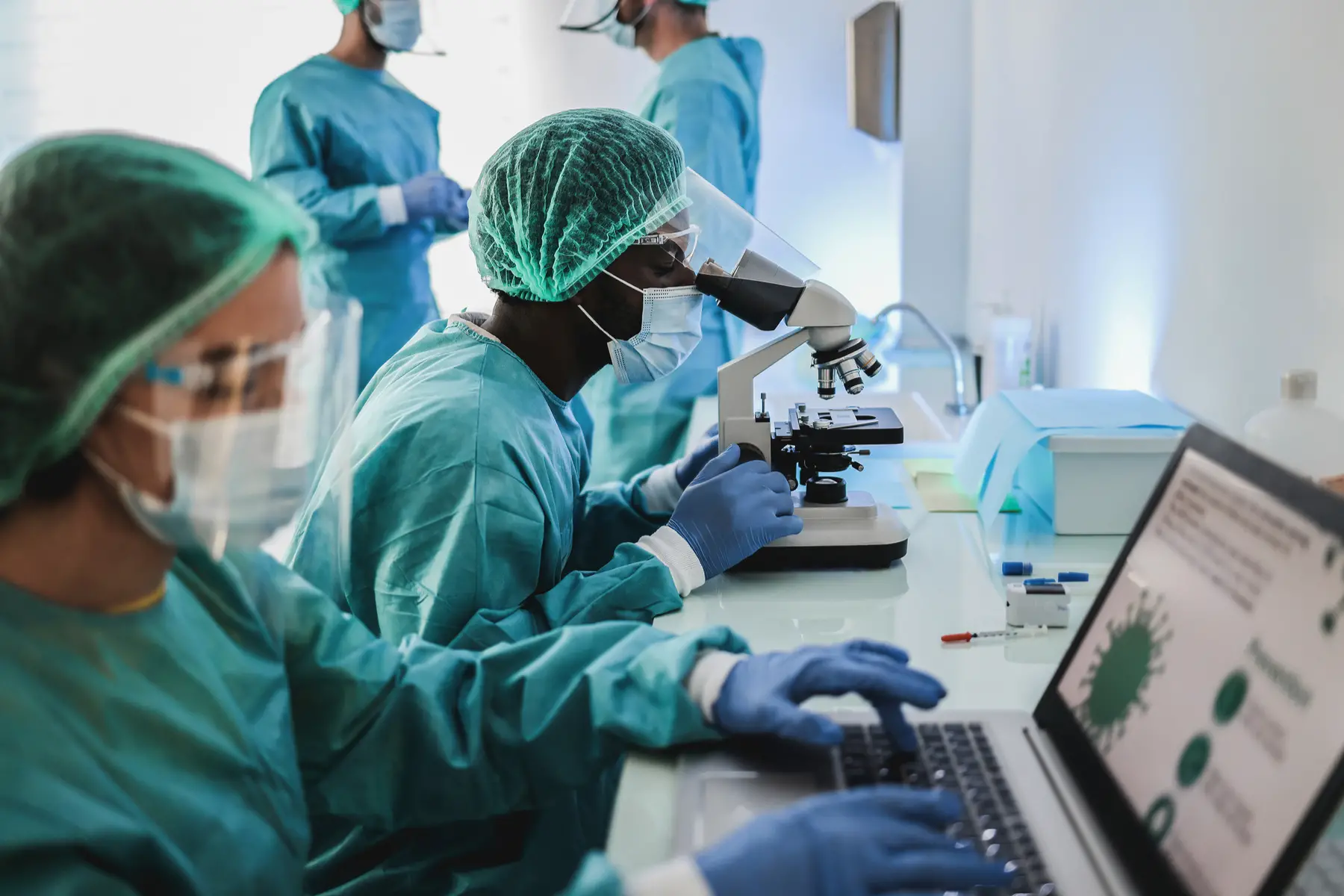
You can find a list of public and private testing laboratories on the Department of Health’s coronavirus website. Furthermore, it also released this PDF, listing all the contact details of the private laboratories authorized to conduct diagnostic COVID-19 tests. You can also test for travel at these private laboratories.
Testing costs
Testing in the public sector is free, but private laboratories, such as Lancet, Ampath, and Pathcare charge fees. You will need to check with your health insurance if they cover these private tests. We have a handy guide to help you search for health insurance quotes in South Africa. Generally, the approximate costs for these tests are:
- PCR – R850
- Antigen – R390
- IgM antibody – R275
You will need to pay upfront, using your passport or South African identity number as a reference. As such, you can pay electronically (EFT), with a credit/debit card or cash. Remember to take proof of payment and identification along. This identification can be your passport or your Smart ID card. This card is an identification card with a unique number issued to all South African citizens or permanent residents over 16.
If you test positive for COVID-19 in South Africa
If you test positive, you must self-isolate at home or a designated facility. Quarantine lasts for up to 14 days. You can only leave isolation after repeated negative tests. Moreover, you can find detailed information on the South African government website about self-isolation and returning to work.
COVID-19 vaccinations in South Africa
Visit the South African Department of Health’s dedicated vaccination portal for the most up-to-date information on the vaccination program against the coronavirus. You can read about the latest vaccination statistics in South Africa on the SAcoronavirus website. For a more general overview of vaccines in the country, read our guide to the vaccination system in South Africa.
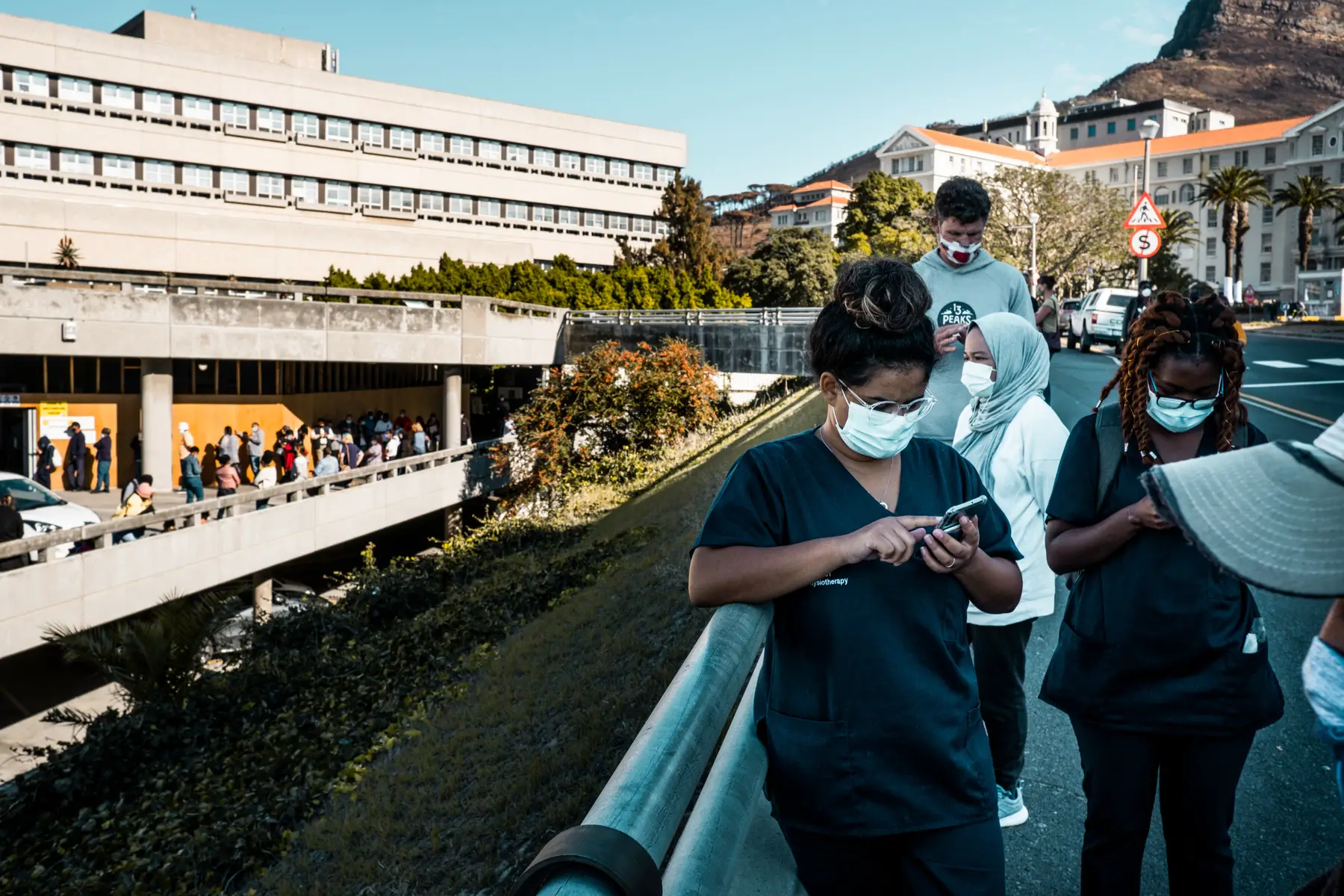
Vaccine rollout process in South Africa
The South Africa vaccination rollout process happened in three phases. The government intends to have at least 67% of the population vaccinated by the end of 2021, as part of its aim for herd immunity. The three-phase approach is as follows:
- 1: Frontline healthcare workers
- 2: Essential workers, congregated settings (e.g., prisons, group homes, shelters), over 60s, and over 18s with co-morbidities
- 3: Anyone older than 18 (current phase)
Approved vaccines in South Africa
The Department of Health approved these four vaccines in the fight against the South Africa coronavirus:
- Johnson & Johnson (only one dose)
- Oxford/AstraZeneca
- BioNTech/Pfizer
- SinoVac
Ivermectin
There are reports of many South Africans self-medicating with Ivermectin, a broadspectrum anti-parasitic agent for veterinary use. Consequently, the Department of Health and the South African Health Products Regulatory Authority (SAHPRA) aligned with the US Food and Drug Administration (FDA), World Health Organization (WHO), and US-based Centers for Disease Control (CDC). These organizations take a strong stance against the use of Ivermectin for the prevention and treatment of COVID-19.
Step-by-step vaccination process in South Africa
You can find all the information you need about vaccinations against the coronavirus in South Africa on the vaccine portal of the Department of Health. In short, these are the steps to follow:
- Register online on the Electronic Vaccine Data System (EVDS) portal.
- Input your South African identification (ID) number/passport, contact details, and date of birth (DOB).
- Complete details of your employment and medical aid scheme.
- Submit your primary location of work and health establishment options.
- Accept the terms and conditions of the EVDS.
- You will receive an SMS confirmation of your registration on your mobile phone.
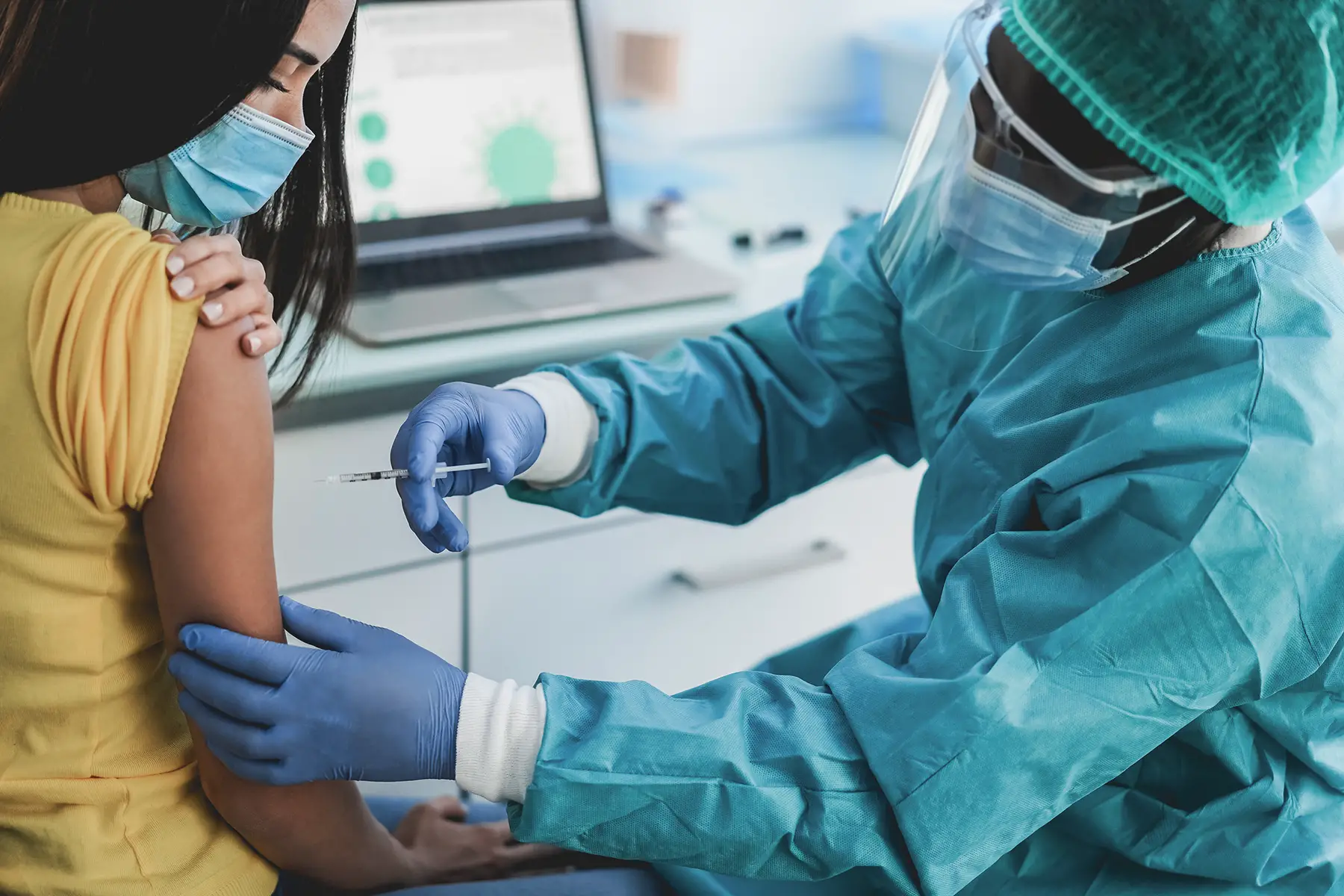
- Find your closest vaccination site.
- Book the time and date of your vaccination appointment.
- Keep your identification number (ID or passport), cellphone, and preferred location handy.
International travel during COVID-19 in South Africa
South Africa is considered a very high-risk country and is currently on the red list worldwide. The Department of Home Affairs regularly updates the list of high-risk countries. This status is a result of highly contagious and serious variants of the coronavirus present in the country.
However, international travel to South Africa is possible but is subject to stringent travel restrictions. Therefore, before booking any international flights to and from South Africa, check your final destination or home country’s travel bans and restrictions. You may be subject to mandatory quarantine at your own cost.
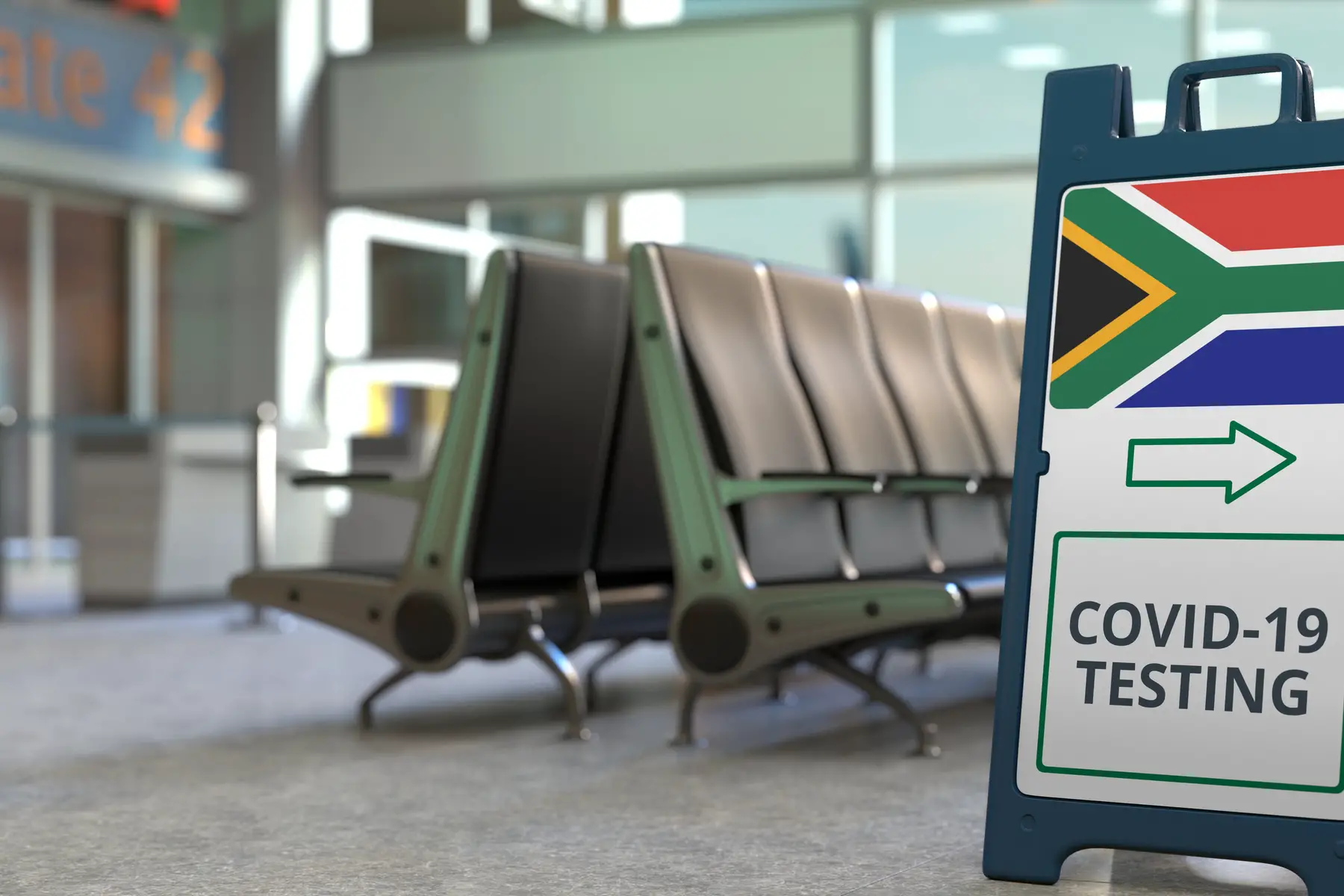
Additionally, the IATA Travel Centre has an interactive world map with each country’s COVID-19 travel restrictions.
Travel restrictions in South Africa
As such, South Africa’s international travel restrictions during the coronavirus pandemic are as follow:
- You can only land at these airports:
- Tambo International (JNB)
- Cape Town (CPT)
- Durban (DUR)
- Lanseria International (HLA)
- Nelspruit (MQP)
- You must show a negative COVID-19 PCR test (carried out no earlier than 72 hours before departure). However, children under five are exempt.
- All passengers must wear facemasks for the duration of their flight and in airports.
- Passengers must complete a traveler health questionnaire upon arrival.
- Airport officals will screen passengers and crew for COVID-19 symptoms.
- Airline crew may have to take a COVID-19 test upon arrival.
- If you display symptoms, airport healthworkers will test you for COVID-19. If you test positive, you must quarantine for 10 days at a designated site and at your expense.
You can keep up to date with the most recent restrictions and international travel advice via the NICD’s portal. The official South African government site also has information on the travel restrictions in place to combat the spread of COVID-19 through the country.
Long COVID support in South Africa
According to the US Centers for Disease Control and Prevention (CDC), if your coronavirus symptoms last for longer than a month, you may have long COVID. Worryingly, there have also been reports of children suffering from long COVID, even if their initial illness was mild.
Common symptoms of long COVID
- Difficulty breathing or shortness of breath
- Tiredness or fatigue
- Symptoms worsened by physical or mental exertion (i.e., post-exertional malaise)
- Difficulty thinking or concentrating (i.e., brain fog)
- Persistent cough
- Chest or stomach pain
- Headache
- Fast-beating or pounding heart (i.e., heart palpitations)
- Joint or muscle pain
- Pins-and-needles feeling
- Diarrhea
- Sleep problems
- Fever
- Dizziness on standing (lightheadedness)
- Rash
- Mood changes
- Change in smell or taste
- Changes in menstrual period cycles
Groups most at risk for long COVID
Even though it is unclear how many people live with long COVID symptoms, some groups seem to be at a higher risk for developing this condition:
- Elderly
- Women
- If you experience more symptoms during the initial infection or needed hospital treatment
- If you are living with clinical depression
- Obesity
- If you struggle with asthma
Support for sufferers of long COVID
Very little is known about long COVID. However, it is a real phenomenon. As a result, more countries, including South Africa, prioritize it as a subject for urgent research to better assist sufferers.
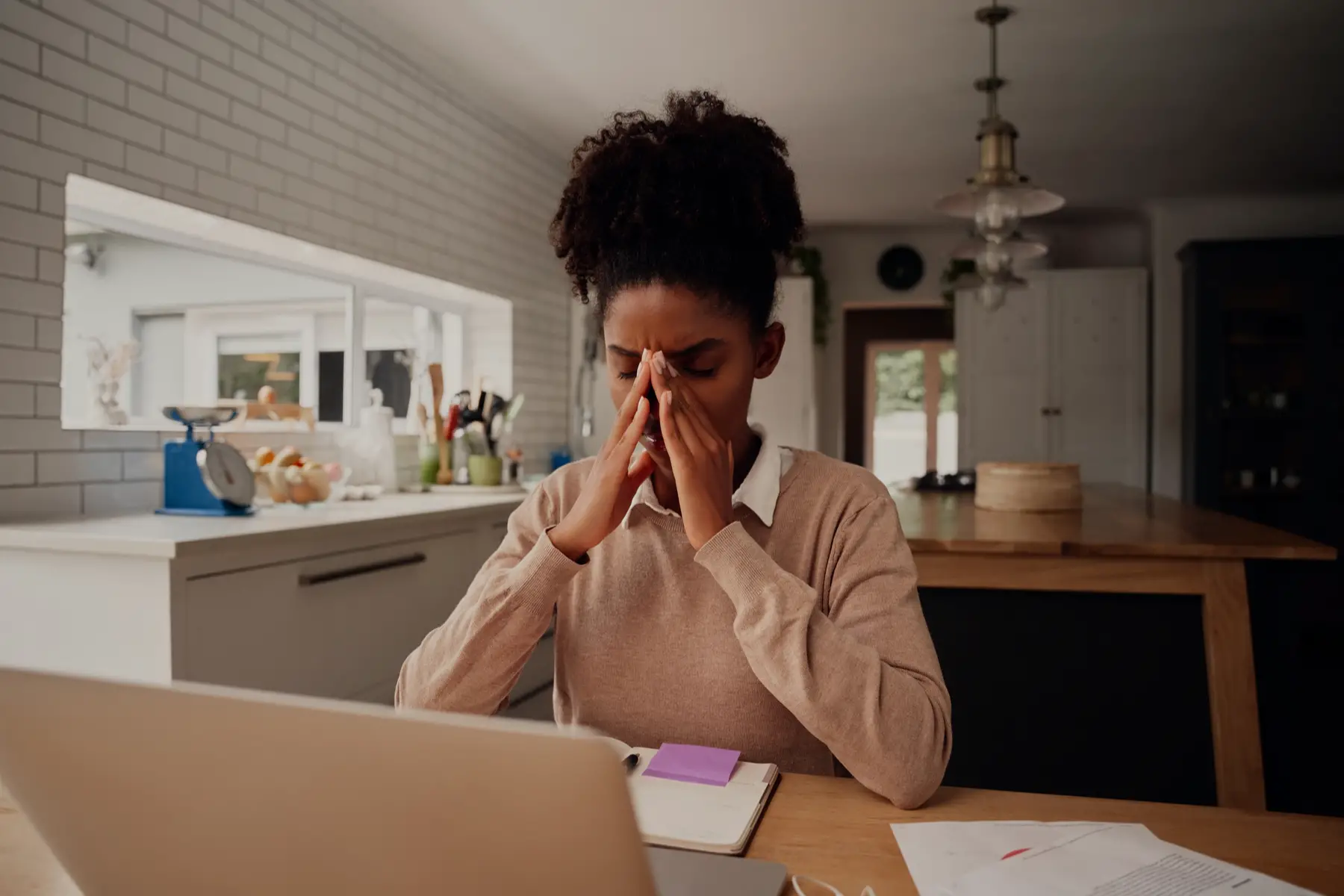
There does not exist a specific body or healthcare facility to support patients with Long Covid in South Africa. Still, the NICD advises to contact your GP if your symptoms last longer than 2 to 3 weeks into your recovery, especially if experiencing these symptoms:
- Severe fatigue
- Chest discomfort
- Shortness of breath
After evaluating your symptoms, your GP will design an individual treatment plan, which may include a multidisciplinary healthcare team such as:
- Primary care clinicians
- Specialist clinicians
- Occupational therapists
- Rehabilitation medicine specialists
- Physiotherapists
- Mental health care practitioners
Online support for long COVID
You can also find online support and information at Survivor Corps, an international grassroots support network for COVID-19 survivors. A UK-based support group – Long COVID.org – does not offer South Africa-specific support. Still, there is a lot of helpful information about long COVID on their website. Furthermore, read about South African’s personal stories on COVID-19 Diaries.
Lifestyle changes to manage long COVID
Generally, the NICD suggests that most symptoms will improve and disappear with time. However, it also recommends these lifestyle changes to manage your symptoms and improve your quality of life:
- Graded, stepwise return to daily activities including work and exercise
- Healthy sleep
- Healthy diet
- Symptom control (including pain management)
You can find out more on the NICD page dedicated to Long COVID.
COVID-19 support for businesses, the self-employed, and freelancers in South Africa
South Africa’s economy has been hit hard by the fallout of the coronavirus with close to a million job losses. Fortunately, there are several economic relief measures available.
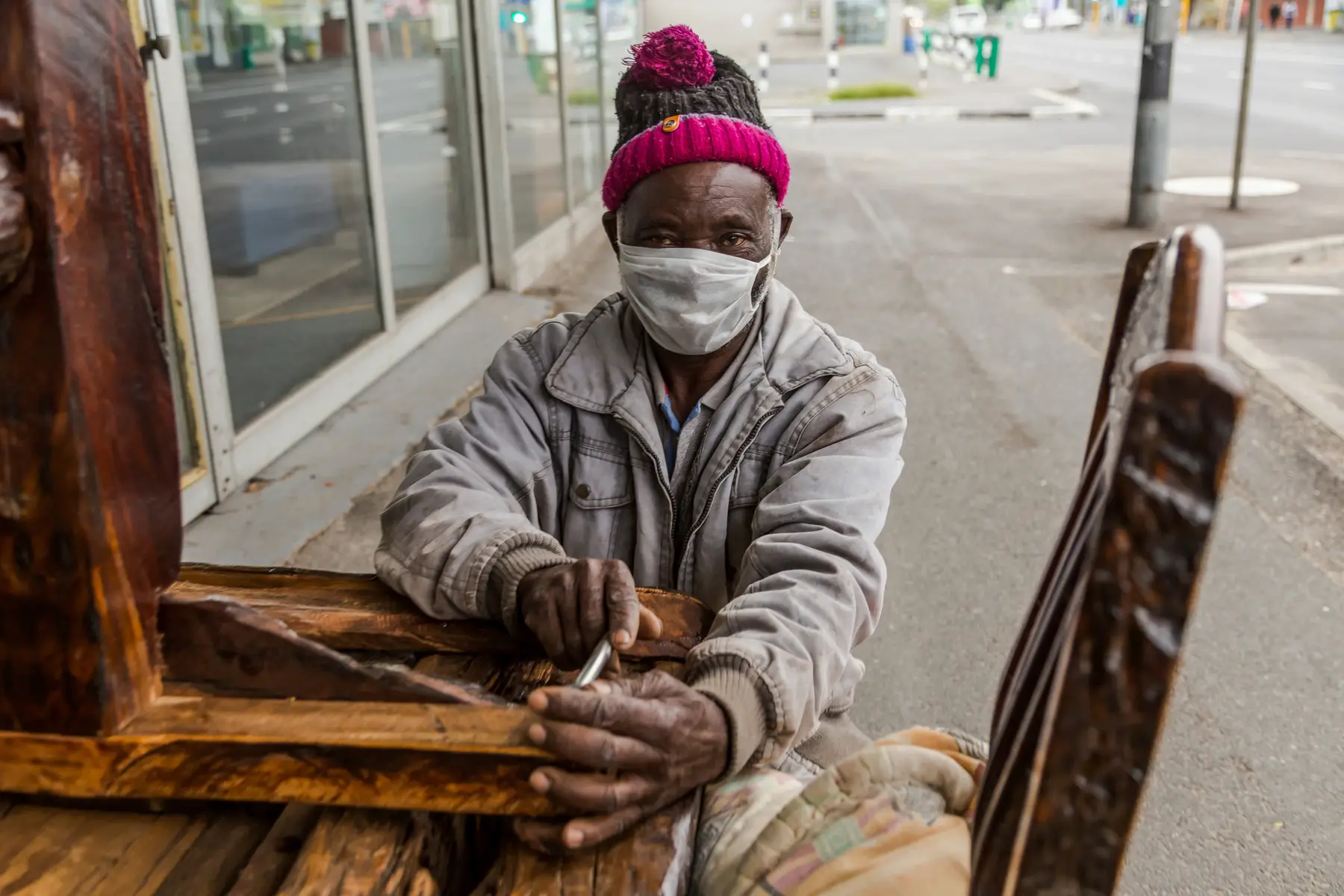
You can find these details on the government’s website:
- Who is eligible
- What the relief measure comprises
- The process of accessing these measures
- The contact details of each scheme
The categories for relief measures
The relief measures cover a range of industries including:
- Small business tax clearance relief
- Debt relief finance scheme for small, medium, and micro enterprises (SMMEs)
- Restructuring of Small Enterprise Finance Agency (SEFA)-funded loans
- Business growth and resiliance facility for SMMEs (i.e., hygiene, medical, and food products)
- Spaza support scheme (small, local, convenience stores)
- COVID-19 Agricultural Disaster Support Fund
- Tourism Relief Fund
Furthermore, eligible businesses can also access tax relief measures and loan guarantee schemes. Additionally, employers unable to pay salaries can apply for the COVID-19 relief benefit. Read the FAQ page on the SA Coronavirus website for more information.
COVID-19 and education in South Africa
School protocols during COVID-19
During the severe lockdown measures, all schools (i.e., public, private, and international), universities, and training institutions closed their doors and reverted to online lessons and homeschooling.
Consequently, learners fell a year behind in academics due to the coronavirus pandemic in South Africa, according to a Unicef report. Specifically, these measures severely impacted pupils living in poverty in rural and informal urban settings, with an estimated 750,000 students currently out of school.
Still, schools opened again after the winter holidays, cutting it short by one week. However, many still operate on a rotational basis and all children and teachers have to wear masks in class.
Support for learners
Moreover, the Department of Basic Education (DBE) encouraged schools to extend their tuition hours. Each province, district, circuit, and school must implement a practical and comprehensive catch-up curriculum plan.
Furthermore, the DBE collaborated with the South African Broadcast Corporation (SABC) to launch a multi-media learner support initiative, broadcasting across three TV channels and 13 radio stations. The STEM Lockdown Digital School also expanded into community television to reach a broader audience.
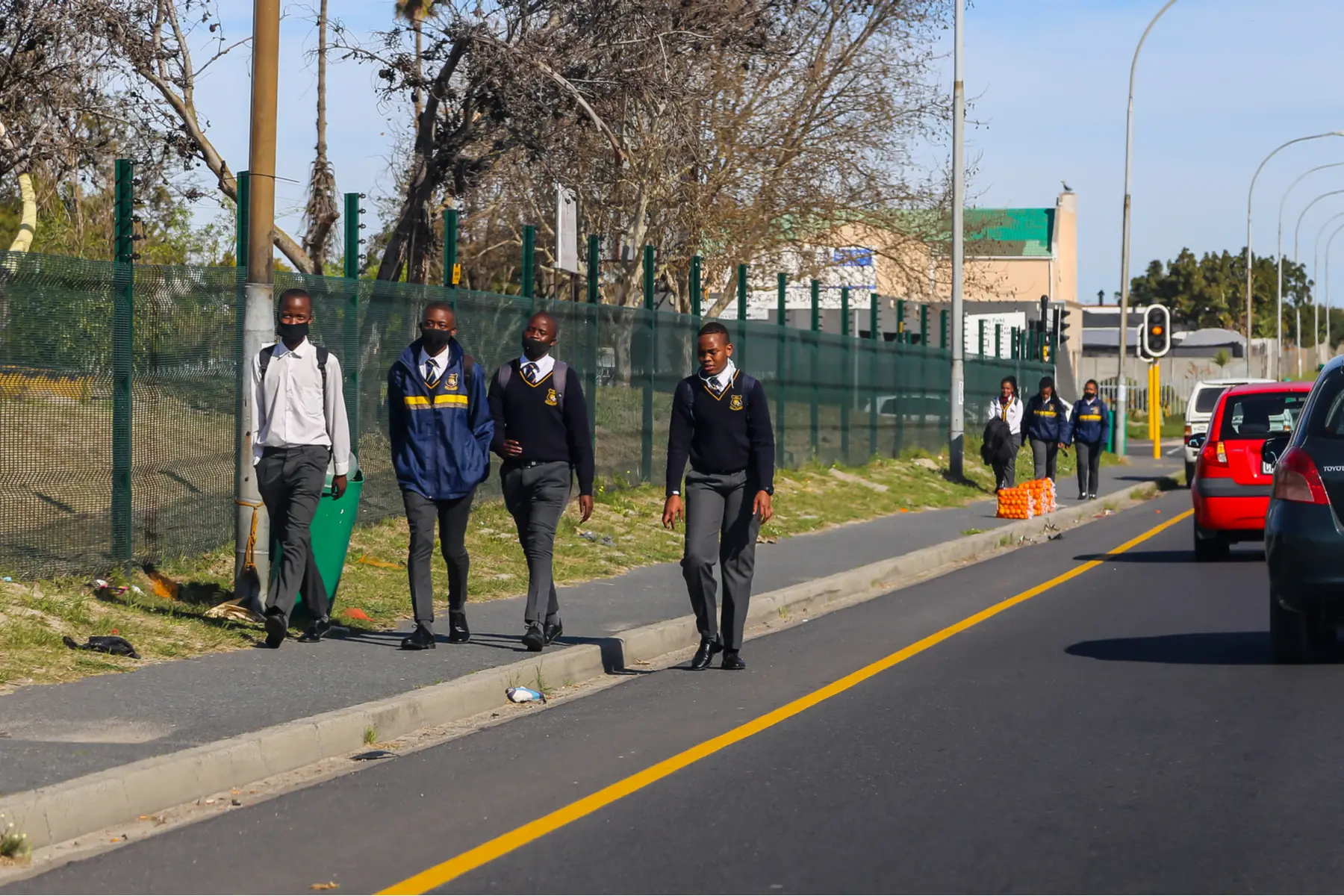
You can find more information about the updated school calendar, homeschooling policy, and learner support programs on the Department of Basic Education (DBE) website.
Support around COVID-19 for vulnerable people in South Africa
Regrettably, there is no clear information about any schemes or projects specifically supporting vulnerable people (i.e., older persons or people living with disabilities) in South Africa. However, all social development and National Development Agency (NDA) offices remain open. The NDA works towards the eradication of poverty in South Africa. Also, the pay points of the South African Social Security Agency (SASSA) – offering social grants to residents in need – remain operational. On the other hand, also see our complete list of emergency numbers in South Africa.
COVID-19 food crisis
Due to the economic fallout of the pandemic, many people struggle to provide the basics for their families because of job losses and an inability to earn an income. Fortunately, some social solidarity networks are reaching out to the most vulnerable communities affected by the COVID-19 food crisis. As such, examples of these grassroots organizations are:
- Boost Africa: provides afterschool clubs for children and channels food and essentials to their households.
- Cape Town Together: oversees community action networks (CANs) pairing affluent and lower-income communities to support each other and share resources.
- Food Flow: uses donor money to buy food from local farmers (who lost customers and income) and deliver it to local NGOs supporting low-income communities.
Social grants and water response
Notably, the spread of South Africa’s coronavirus is amplified by large communities not having access to enough clean water. As a result, the Department of Water and Sanitation aims to provide emergency water supplies in rural areas, informal settlements, and public areas to improve hygiene conditions such as frequent handwashing.
Moreover, the South African government activated a COVID-19 disaster relief fund (R96 million) to provide immediate financial assistance to affected individuals and families. You can find all the information on who is eligible and how to apply on the government’s social grants for coronavirus page.
Mental health, family relationships, and gender-based violence
Mental health concerns have always risen exponentially during the COVID pandemic. There are some tips on how to look after your mental health during a lockdown phase. In case of psychological distress, you can also call the national crisis line 24 hours on 0861 322 322.
Furthermore, there have also been reports of an increase in domestic and gender-based violence – particularly against women and children. Survivors of this type of abuse can contact the following organizations for help, support, referrals, and counseling:
- Gender-based violence command center: 0800 428 428 or send an SMS *120*7867#
- People opposing Women Abuse (POWA): 011 642 4345 or 083 765 1235 (A/H)
- Stop Gender Violence: you can speak to a counselor in 11 official languages – 0800 150 150
- FAMSA: 011 975 7107
- Childline: 0800 05 55 55
